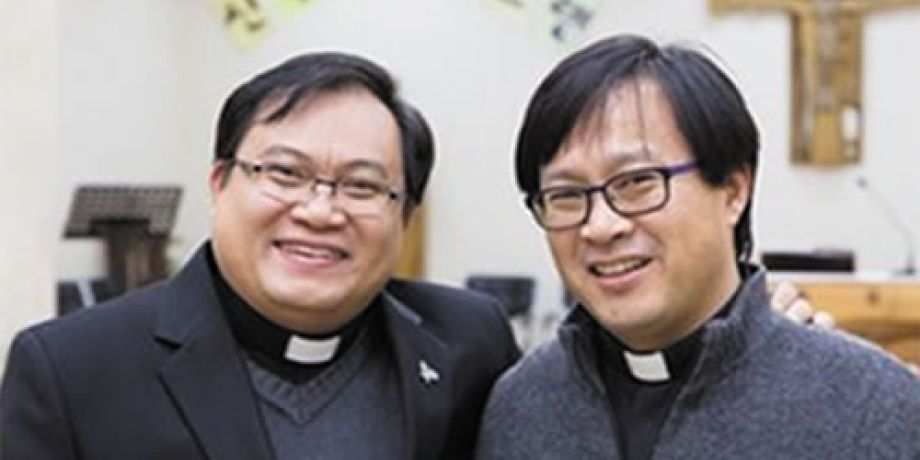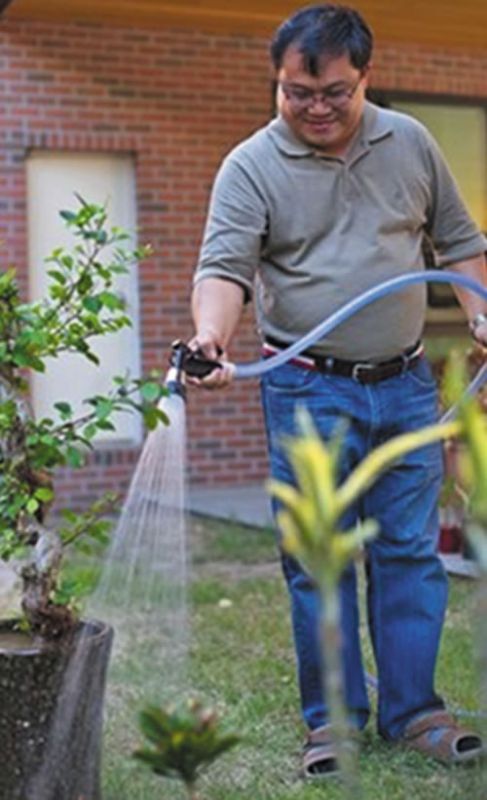
In February 2015, I was appointed vice-rector to the Columban formation program in Korea. Just like any journey, my journey into formation ministry has been a step into the unknown. Along the way everything seemed new and, as a result, I felt anxious and excited at the same time. One of the major challenges which I expected was trying to get used to living in community with our seminarians, our rector, and our staff.

Any formation program must be focused on the individual person. It is about young Catholic men who desire to be missionary priests and their subsequent journeys through a period of intense and supervised training. A formation program, therefore, is not about activities, but about the seminarians who joined our formation program. Since the focus of formation is the individual person, I consider the formation ministry to be one that requires a great deal of patience. Using this as my starting point, I would like to share my reflections as vice-rector of the formation program for more than two years now.
Yes, the formation ministry requires a lot of patience! I need to be patient with myself and with our students. With myself I need to be patient because there are so many things still to be learned as vice-rector. As I mentioned earlier, the focus of our formation program is our seminarians: paying attention to them and caring for their needs. However, being part of this journey of growth leading to maturity demands a lot of patience. When we enter the realm of human growth and maturity, personal history and the individual's ability to respond are central. Often this is a painstaking process and for some it is also an extremely slow one.
Caring for the plants has become one of my little tasks in the formation house. It is a task I undertake with great delight.
Integration of Columban missionary spirituality in their lives is an activity to which our seminarians are invited to take part. All the above plus many other tasks are placed before our seminarians who are, in turn, encouraged to interact with these inside a specific period of time. It normally takes a seminarian about eight years to complete his Columban formation program. However, depending on circumstances, some seminarians might take more than the average eight years to complete their training. Completion of the program usually culminates in full membership of the Society, diaconate ordination and, finally, ordination to the priesthood.
This underlying time element encouraged me to reconsider both my attitude towards and ability to be patient. I admit that my first year in formation was difficult. My patience was tested. This was a period during which the ideal and reality of formation constantly played tugof- war with my patience. It was, I recall, an unsettling time. During this period, my constant prayer was "Lord, teach me to be patient." And thankfully, through the following school year my prayer seemed to be answered. Insights into the art of patience began to emerge. Indeed, I firmly believe that patience is an art which involves and demands passion, sensitivity, creativity, skill, and discipline.
Caring for the plants has become one of my little tasks in the formation house. It is a task I undertake with great delight. One day, as I set about watering the plants I was overcome with a sense of awareness which made me more attentive to the needs of the plants. I was struck by the way the plants drew me to appreciate not only their aesthetic character but also to realize how they react to the environment surrounding them. In short, I noticed the life movement of these plants. Some plants live with less water and minimal exposure to sunlight, others need lots of water and sunlight to live; some plants only manage to live in spring and summer, others have adapted well to the extremes of summer and winter. On a personal note, I particularly admire plants that are resilient to the bitter cold of winter. Most plants show their full potential and beauty during spring and summer; some plants adapt and grow to a ripe old age in the formation house, others don't fare so well. What I became more aware of was how these plants are all sensitive and vulnerable in different ways. I began to see the plants as they are.
What I became more aware of was how these plants are all sensitive and vulnerable in different ways. I began to see the plants as they are.
This simple act of caring for plants has led me to some insights. The first insight relates to my role as vice-rector. The act of nurturing is two-fold: first, I must nurture my own vocation as a Columban missionary priest; second, I, as vice-rector, have a role to play in nurturing the vocations of our seminarians. The second insight is related to vulnerability. In our formation house, we have plenty of opportunities to share and learn about our vulnerability: priests and seminarians are learning to appreciate each other's strengths and growth areas and, in turn, try to treat each other with care. The third insight is on the idea of stewardship. It is becoming ever more apparent to me that Jesus Christ is the true Formator and that our seminarians are simply entrusted to me and our rector in our role as stewards.
These insights give me a comforting perspective from which better to understand how the virtue of patience can be practiced in our formation house. These insights do not only expand my understanding of patience, but they also express the character of our Creator who is gentle and patient towards His entire creation. As our patron, St. Columban, once said in a sermon, "Seek no further concerning God; for those who wish to know the great depth (of God) must first learn about creation."
Columban Fr. Jude Genovia lives and works in Korea.